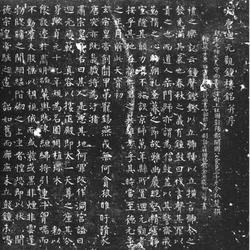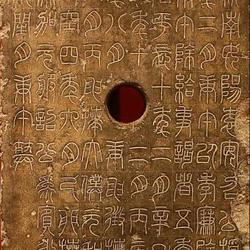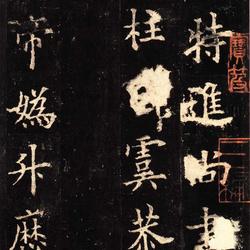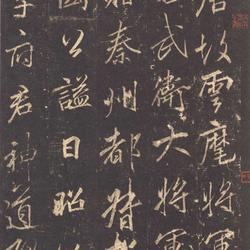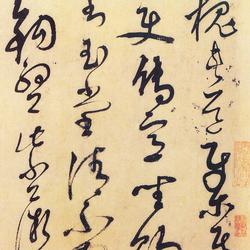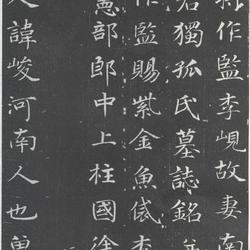"Epitaph of Zhang Heinv" (黑hè女rǔ), the full name is "Epitaph of Zhang Xuan, the late governor of Nanyang in Wei Dynasty", also known as "Epitaph of Zhang Xuan". Zhang Xuan's nickname is Hei Nu. To avoid the name taboo of Aixinjueluo Xuanye, Emperor Kangxi of the Qing Dynasty, people in the Qing Dynasty popularly called it "The Epitaph of Zhang Hei Nu".
This stele was inscribed in the first year of Putai in the Northern Wei Dynasty (AD 531). There is no trace of where it was excavated. The original stone of this stele has been lost, and only a cut and framed copy from the collection of He Shaoji in the Qing Dynasty remains.There are twenty lines of regular script, each line has twenty characters, totaling 367 words. The place of origin is unknown, but the original rubbing is now in the Shanghai Museum.The calligraphy of the annals is exquisite and ancient, with simple and luxuriant peaks and ridges, a flat, square and sparse structure, with many references to official meanings and a rather clumsy quality. Although this epitaph is a formal book, its writing style is informal, restrained, and naturally elegant. The brushwork uses both center and side strokes, both square and round, to achieve a balance between hardness and softness. The vivid and elegant style represents the highest achievement of the Northern Wei Dynasty's epitaphs, and can be called the finest calligraphy of the Northern Wei Dynasty.
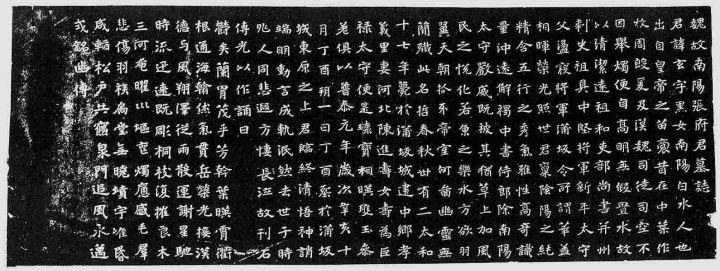
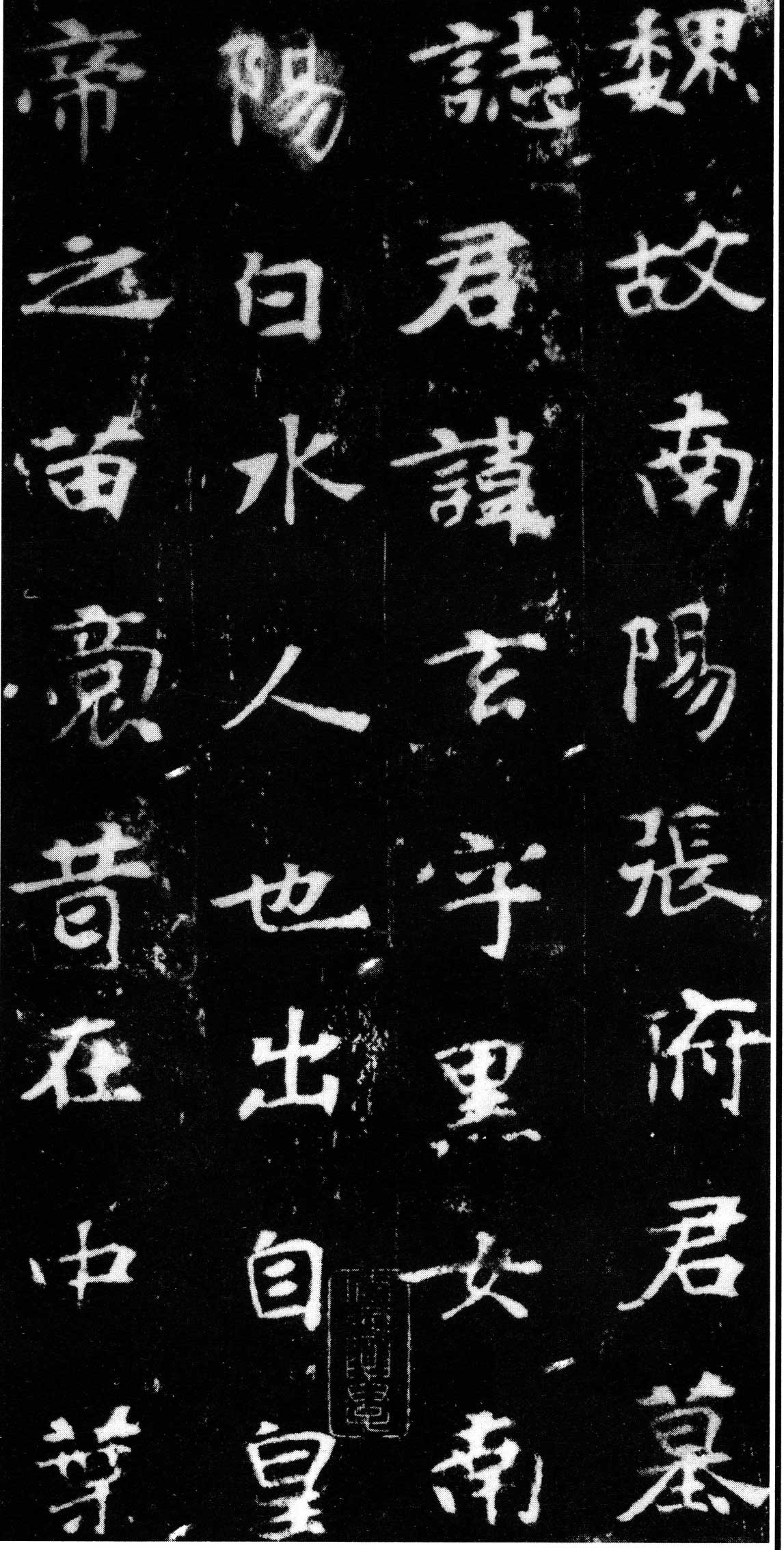
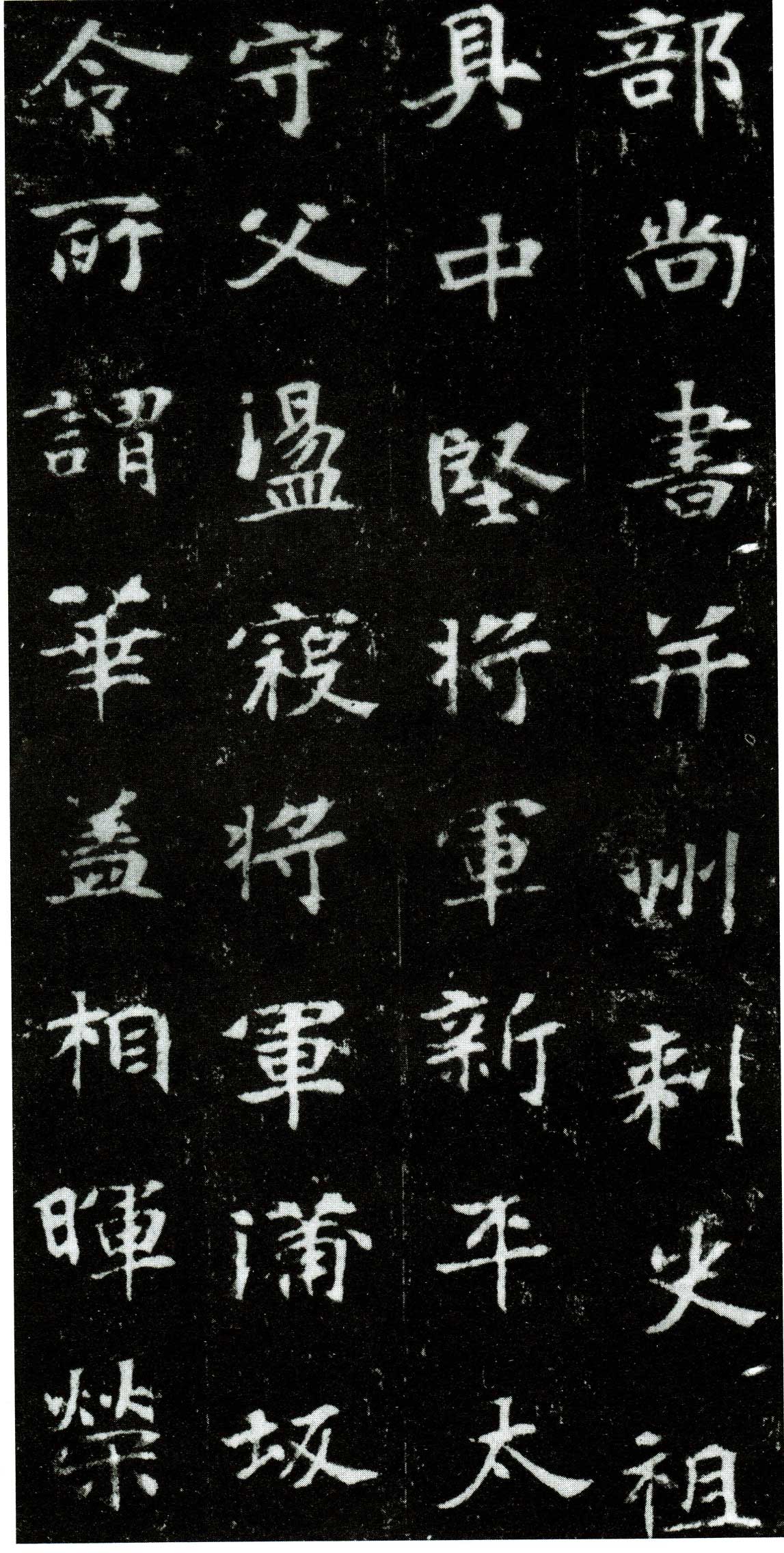
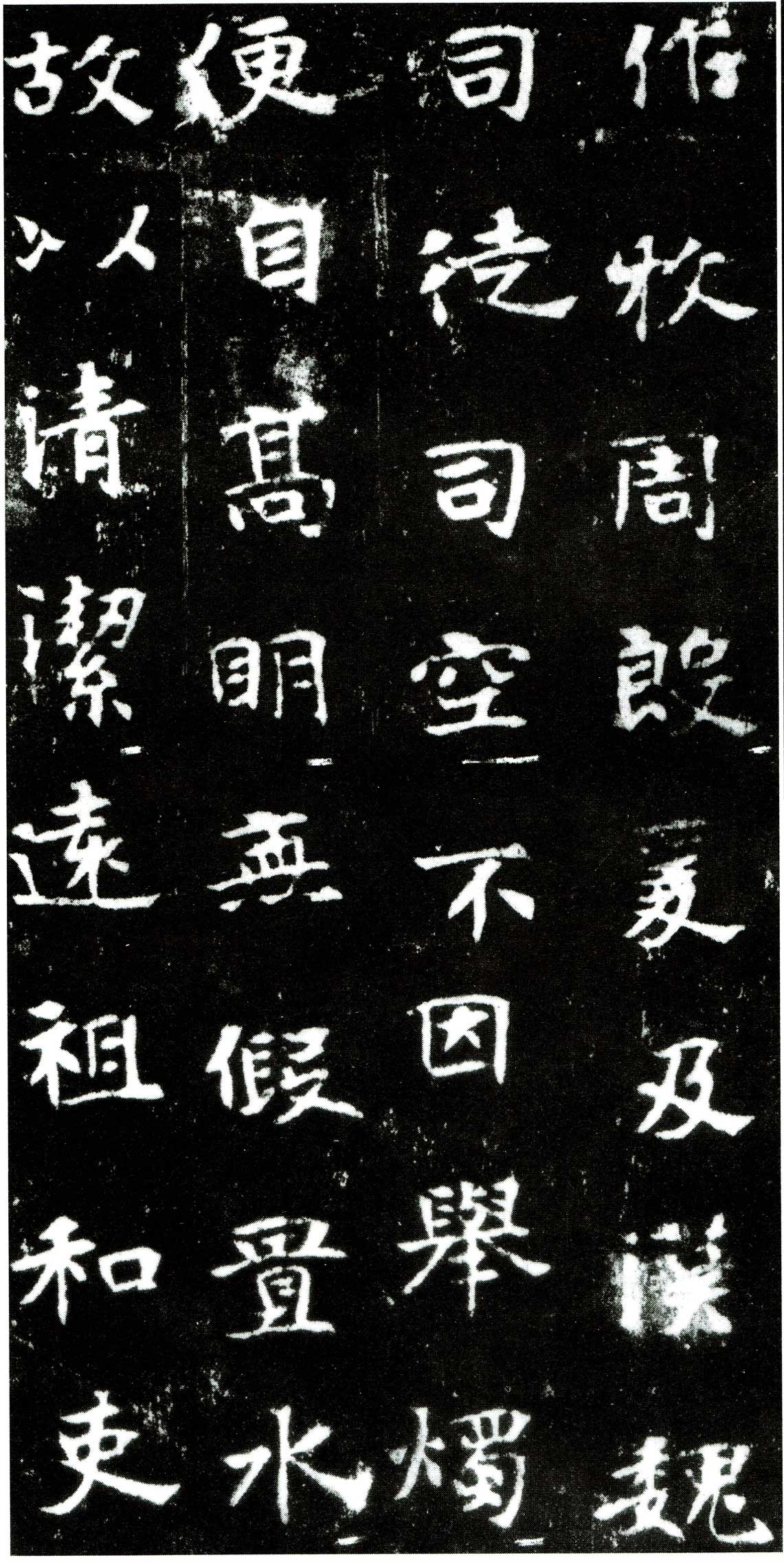
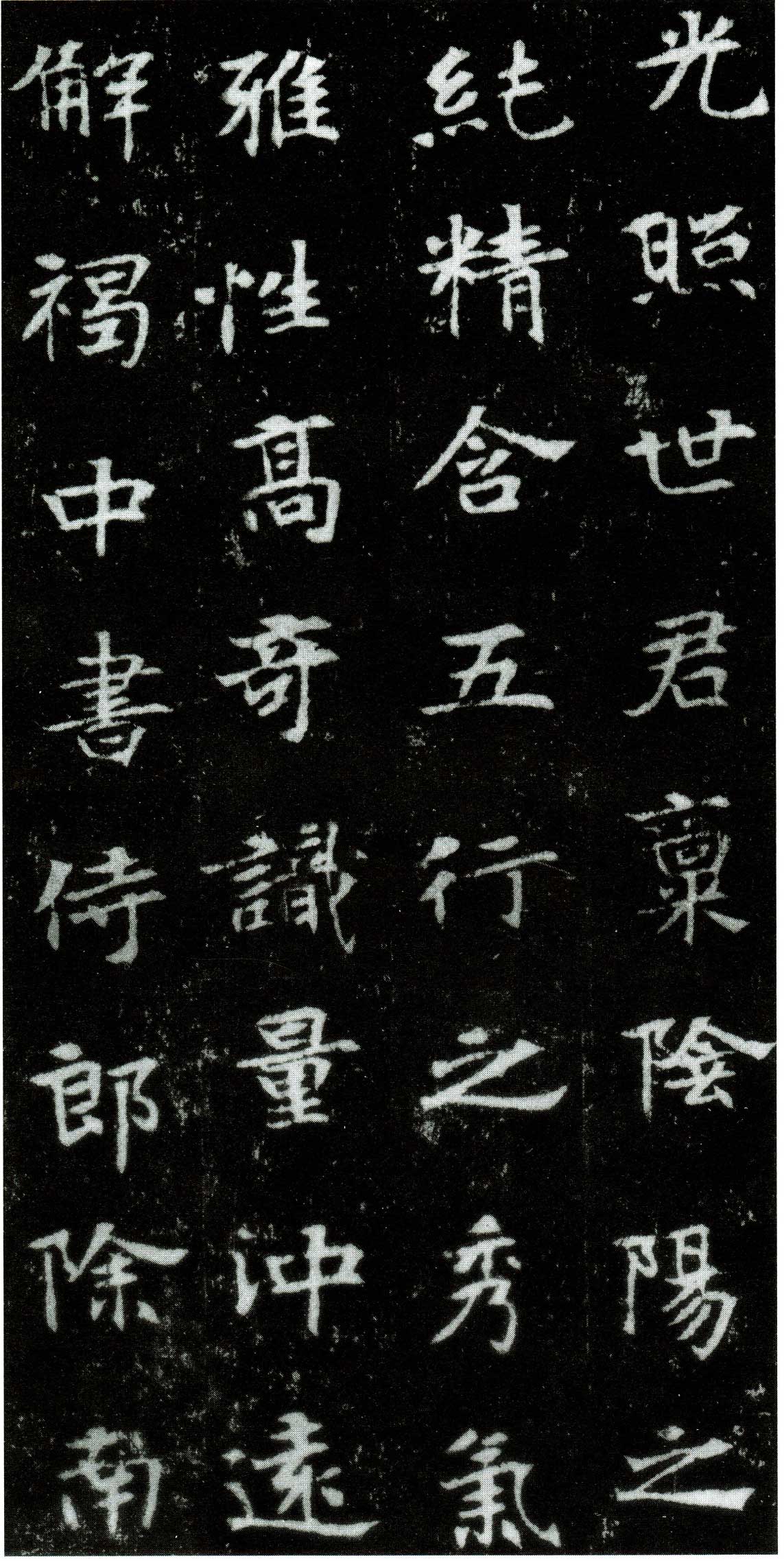
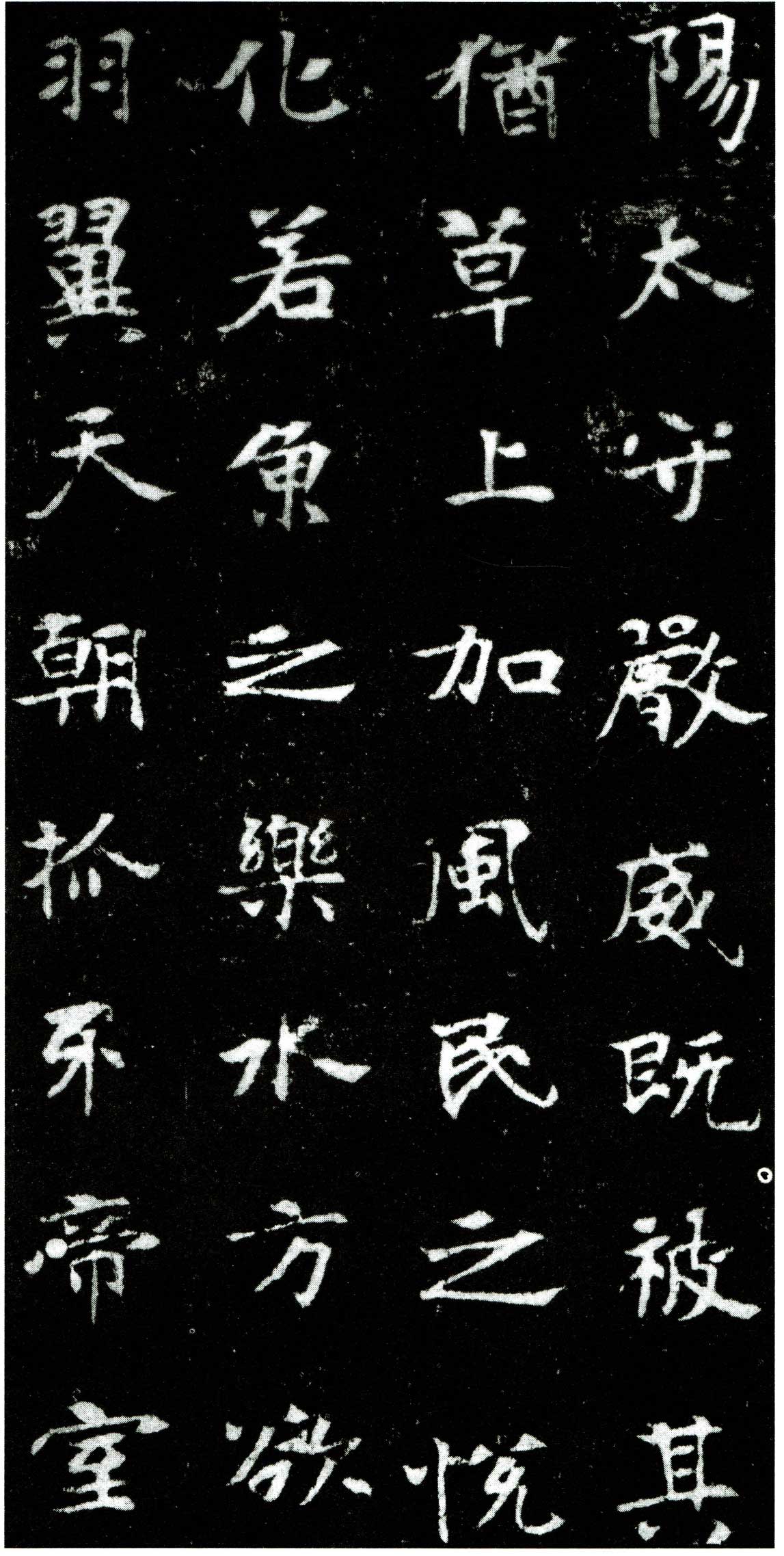
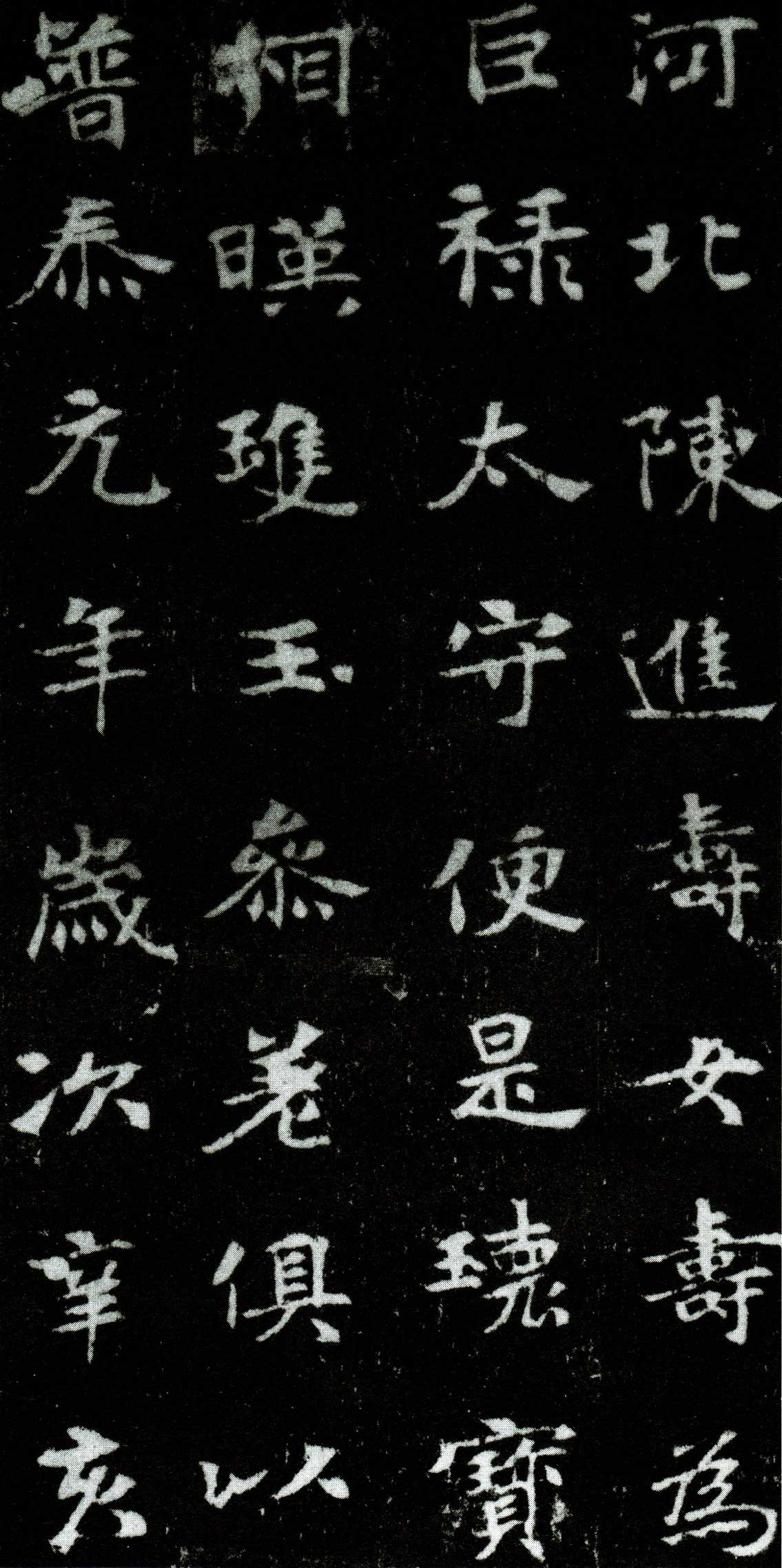
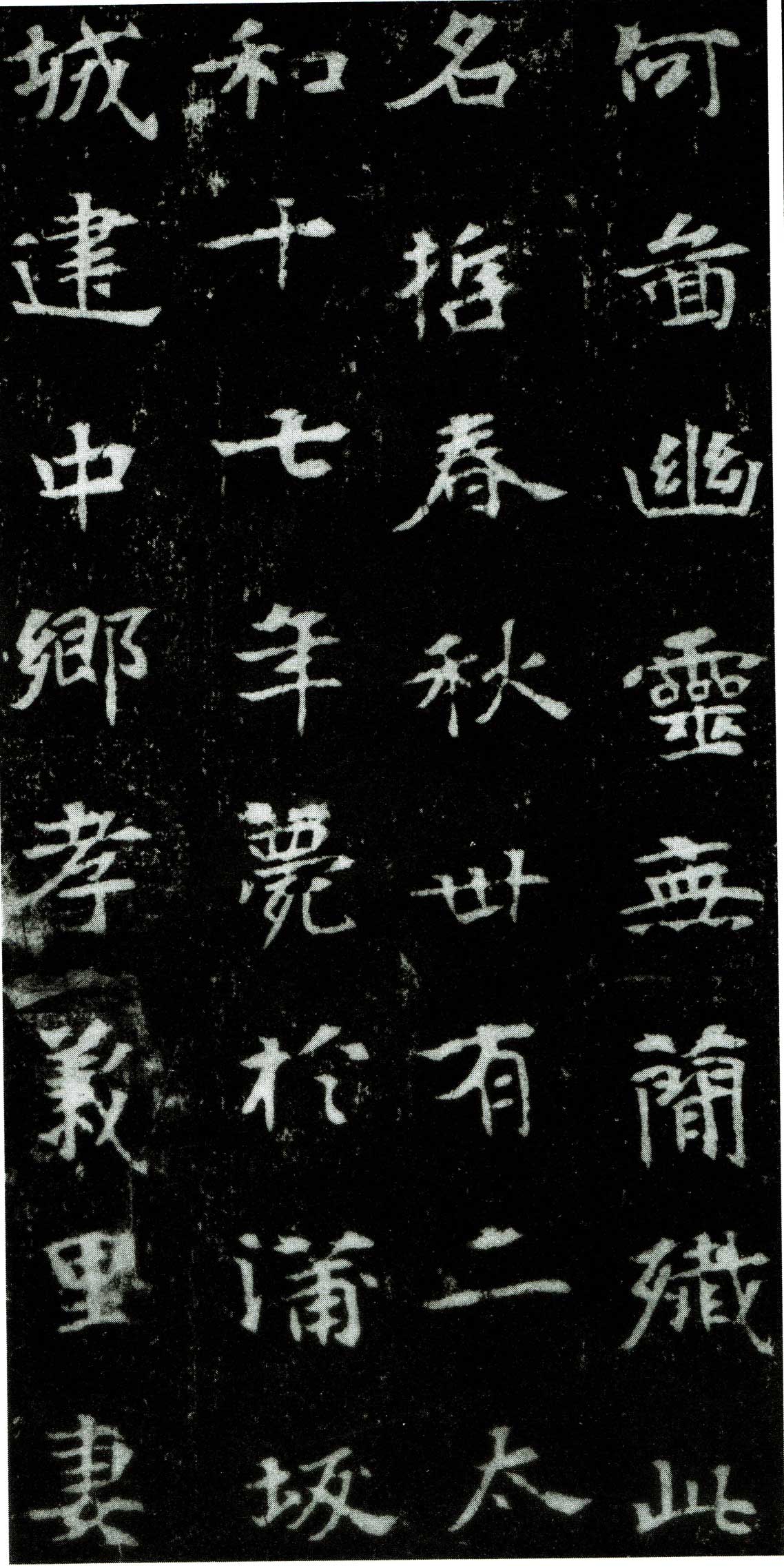
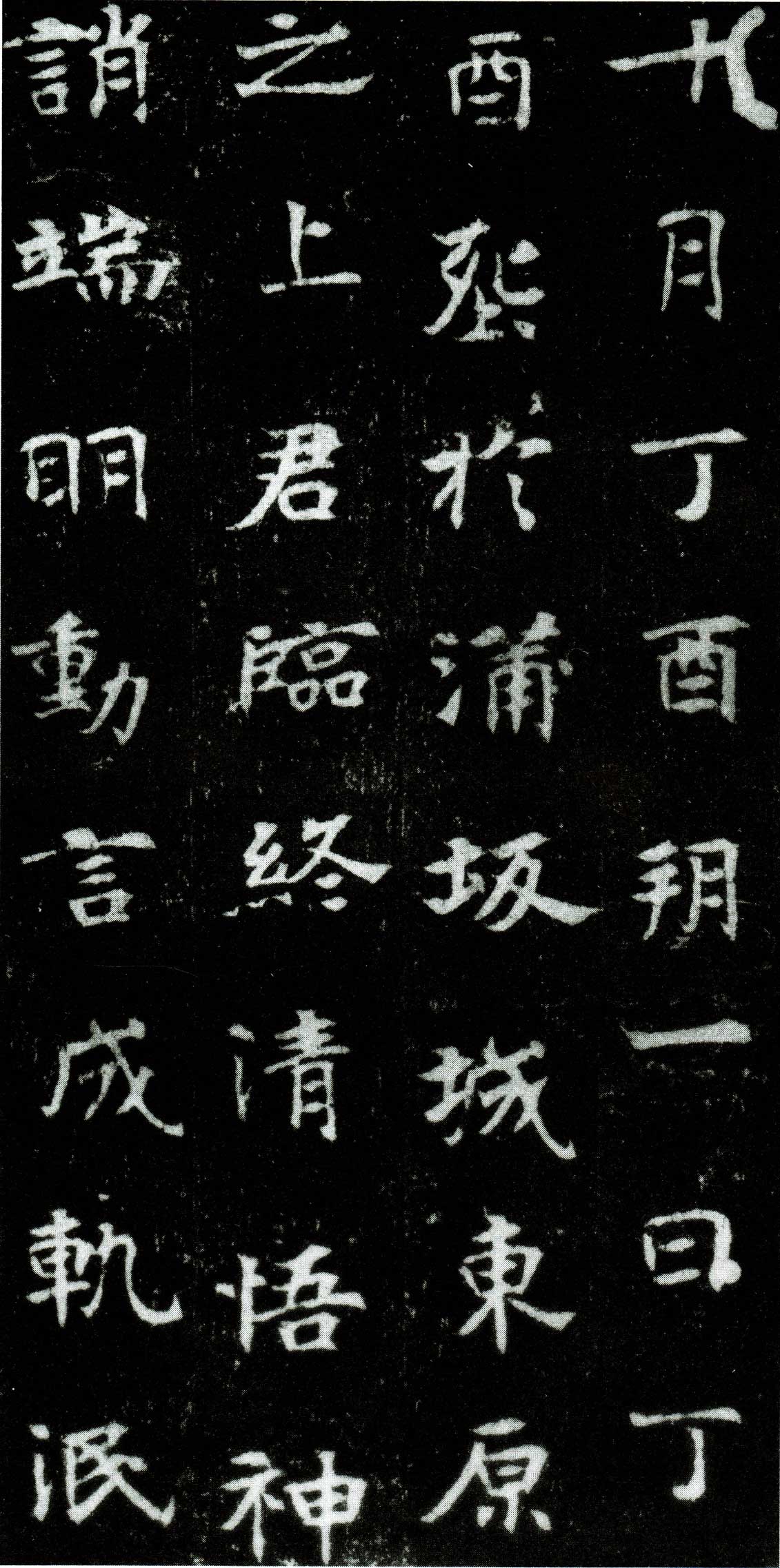
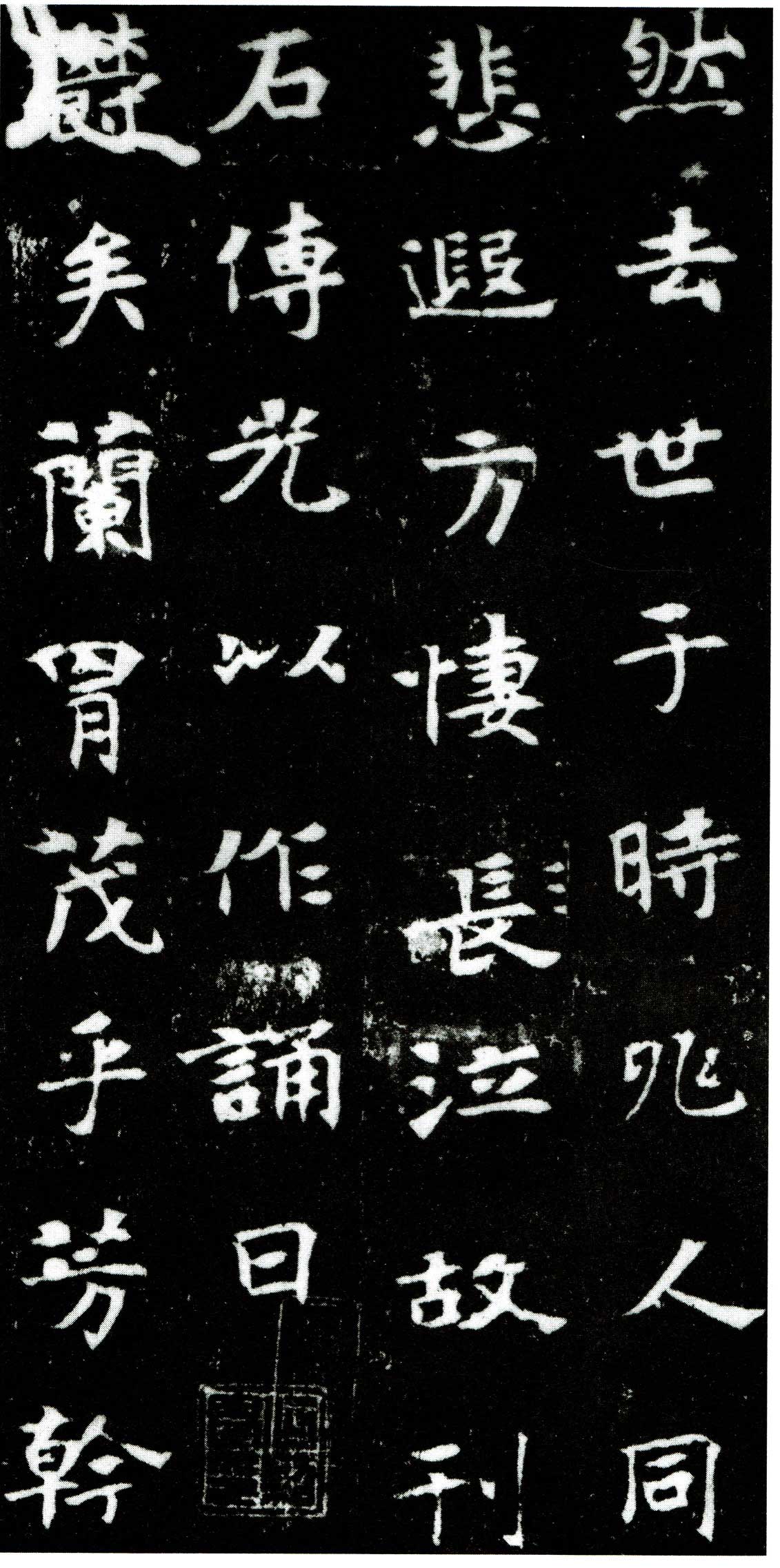
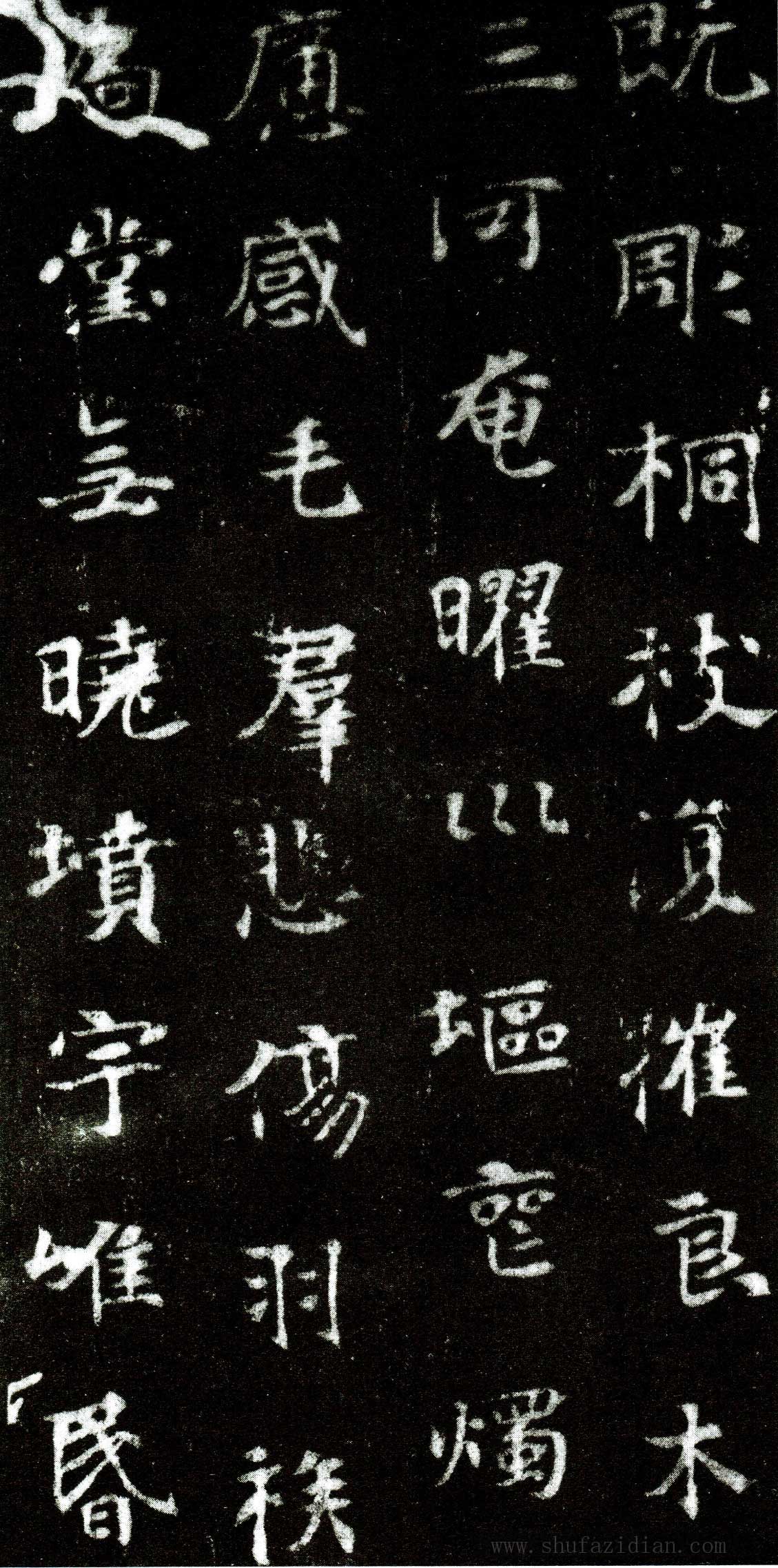
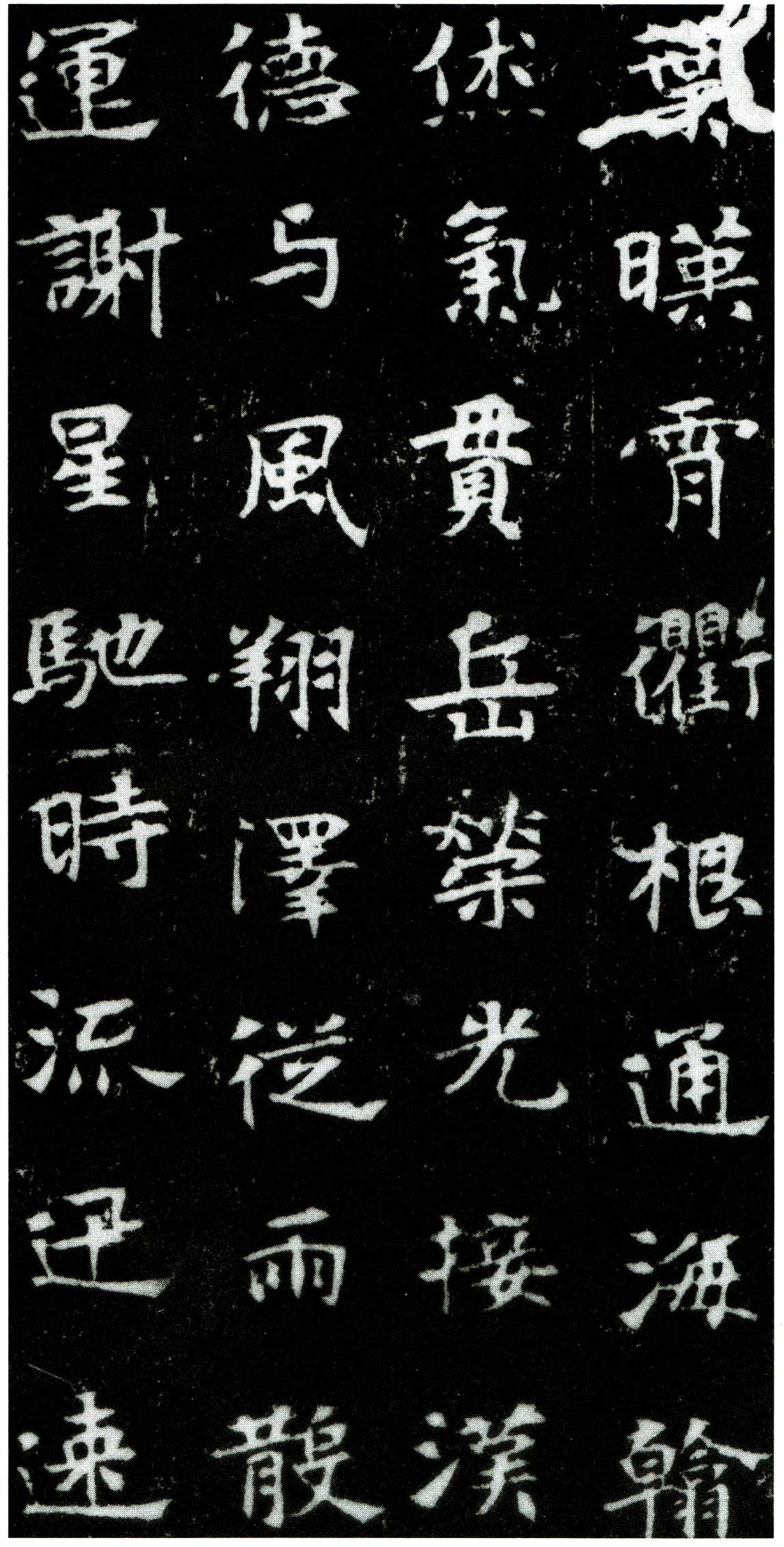
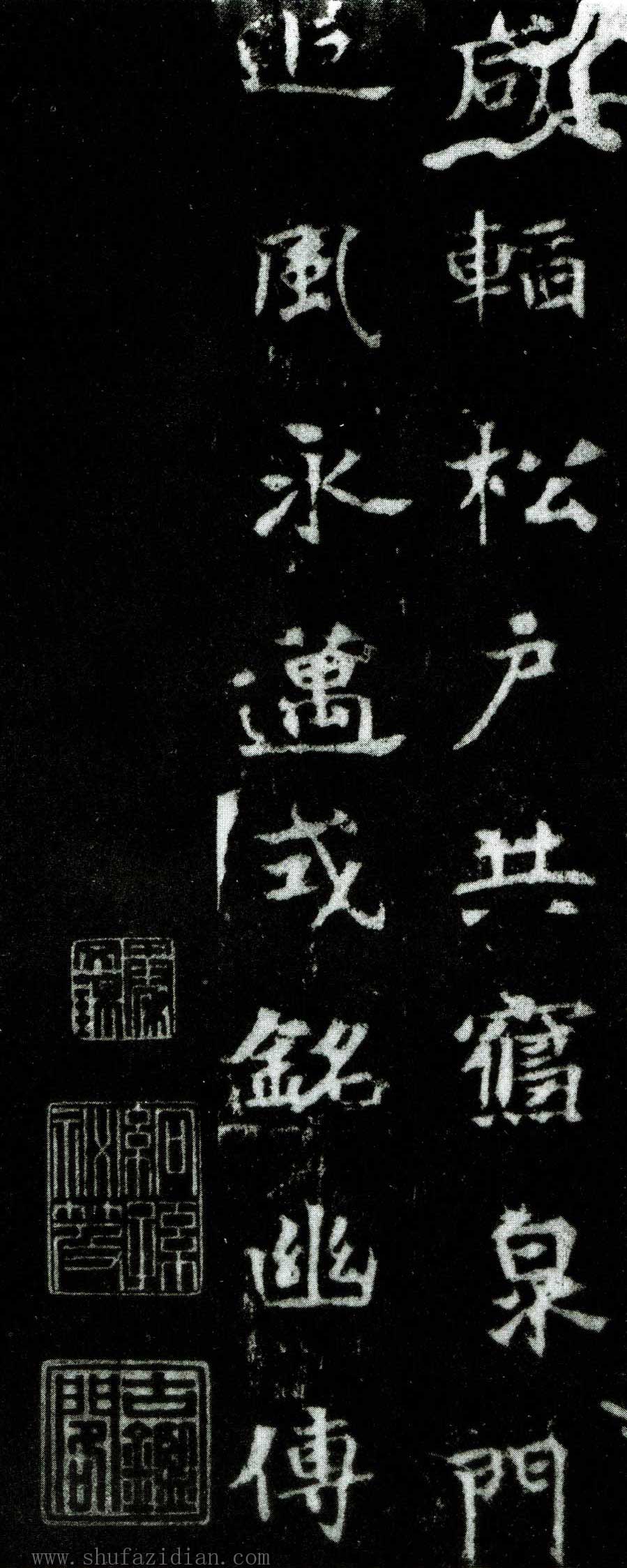
"Zhang Heinv's Epitaph" mainly uses square brush strokes, and also uses circular strokes. The horizontal strokes are either rounded and then closed, or squared and closed, with long strokes and twists and turns. The corners contain the meaning of division and official leave, and many of the pens have the meaning of cursive calligraphy. The word "knot" is slightly flat and the body contains momentum. It not only inherits the charm of the Northern Wei Dynasty, but also adopts the regular script of the Tang Dynasty. It has the majestic spirit of the northern stele and the elegance of the southern stele. It can be called the best of the northern stele. He Shaoji wrote in a postscript about this stele: "I was fond of northern stele by nature, so I imitated it very diligently, and I also bought and collected it richly. I changed it into seal script and divided it into regular script, so I couldn't find a bad idea, and I couldn't reach perfection. However, it is thick and ancient. There is no one who can compare with "Black Girl"." Kang Youwei also highly praised this stele, which he wrote in "Guang Yi Zhou Shuang Ji". "Bei Wei" said: "The Jundangs include "Zhang Heinv" and "Maming Temple"." In "Sixteen Sects", it is said that ""Zhang Xuan" is the sect of high quality and partial sect."
Explanation of "Zhang Xuan's Epitaph":
The epitaph of Zhang Fujun, the deceased of the Wei Dynasty in Nanyang. Jun's taboo is Xuan, her courtesy name is Hei Nu, and she is from Baishui, Nanyang. From the descendants of the emperor. In the past, in the middle period, he served as pastoralist of Zhou Dynasty and Yin Dynasty. Yuan and Situ and Sikong of Han and Wei. If you don't hold up a candle, you will be wise; if you don't put water on it, you will be clean. Yuanzu He was the Minister of the Ministry of Personnel and the governor of Bingzhou. Ancestor, backbone general and Xinping prefect. Father, General Tang Kou and Ling Puban. The so-called canopy shines brightly, and its appearance illuminates the world. You are endowed with the pure essence of yin and yang, containing the elegance of the five elements. His elegance is high and his knowledge reaches far. Jie Brown was appointed as the assistant minister of Zhongshu, excluding the prefect of Nanyang. Once the majesty is covered, it is like the wind on the grass, and the people's joy is like the joy of fish in the water. Fang wants to fly to heaven and seize the royal family of Ya. There is no ghost in the picture, so wipe out this famous philosopher. On the 2nd day of the 30th year of the Spring and Autumn Period, in the 17th year of Taihe, he died in Xiaoyi Lane, Jianzhong Township, Puban City. Wife, daughter of Chen Jinshou in Hebei Province. His longevity was the Grand Administrator of Julu. It is the treasures that complement each other, and the jade is uneven. All in the first year of Putai, the year of Xinhai, the tenth month of the lunar month, the first day of the lunar month, Dingyou, and he was buried on the east plain of Puban City. At the end of your life, you came to enlightenment. God brought you enlightenment, your actions and words came true, and you passed away without a trace. At this time, everyone is sad, and Xia Fang weeps sadly. Therefore, I published the stone to spread the light and wrote a recitation: The orchid is lush and lush, and the branches are lush and fragrant. Ye Yingxiao Qu, roots leading to Haihan. The hero's spirit runs through the mountains, and his glory reaches the Han Dynasty. Virtue and wind soar, and the rain disperses. Luck Xie Xingchi, time flows quickly. It has withered the tung branches and restored the good wood. Sanhe is dying, Sichuan is in mourning. I feel pain for the hair group, and feel sad for the feather tribe. There is no dawn in the hall, and only darkness in the tomb. Xiantao Songhu, sleeping together at Quanmen. Chasing the wind forever, the style inscription is passed down quietly.

